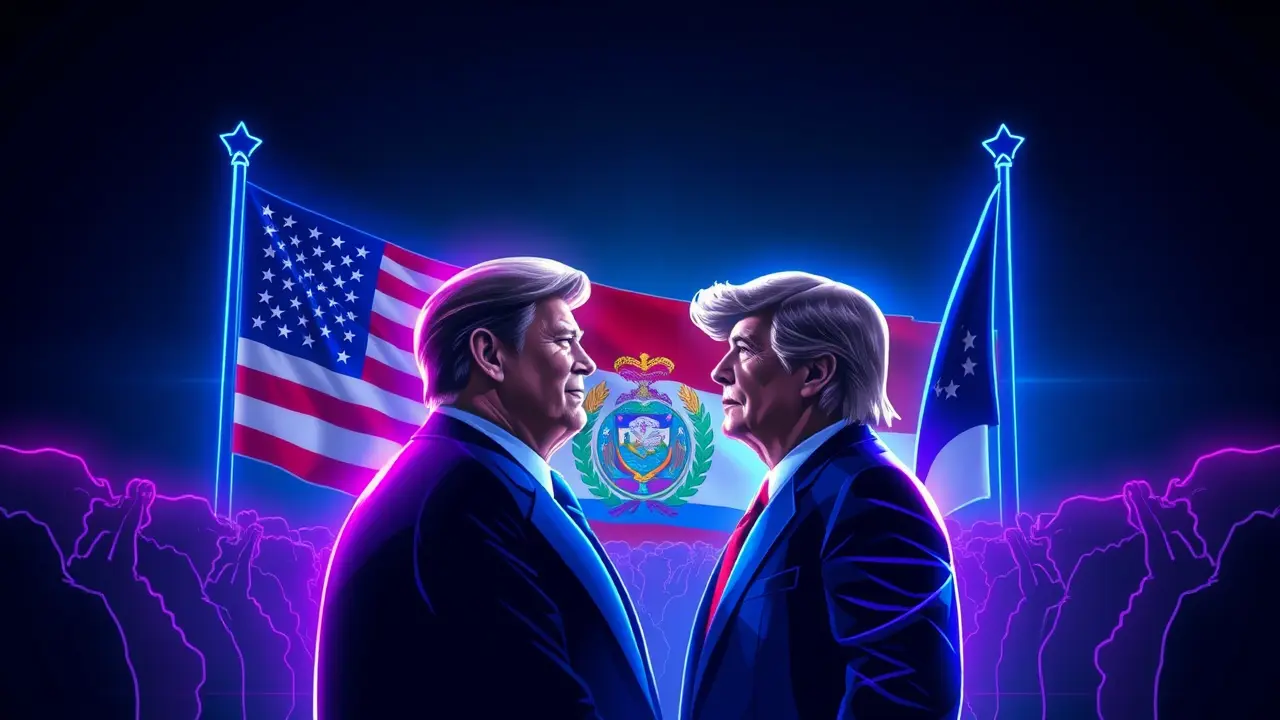
PoliticsdiplomacyBilateral Relations
US and El Salvador Claim Closer Ties Under Trump and Bukele.
RO
Robert Hayes
2 days ago7 min read
When United States Secretary of State Marco Rubio declared in September that the two nations 'had never been closer,' it was a statement demanding scrutiny against the long and often fraught history between the United States and El Salvador. The polished social media camaraderie between Presidents Donald Trump and Nayib Bukele, coupled with increased collaboration on security matters, presents a superficially convincing picture of a strategic alignment unseen in decades.However, to accept this at face value is to ignore the complex geopolitical chessboard where such declarations are made. Erik Ching, a professor specializing in Salvadoran studies, would likely point to the deep-seated legacy of U.S. intervention during the Salvadoran Civil War, a period where American support for the ruling junta left a lasting scar on the national psyche and fueled mass migration northward—a central issue in contemporary U.S. politics.The current 'closeness' is less a meeting of ideological soulmates and more a transactional partnership forged in the fires of mutual political necessity. For President Bukele, a leader who has consolidated power with a heavy hand, cracking down on gangs with a state of exception that has drawn international condemnation for human rights concerns, the overt support from a U.S. administration provides a powerful shield of legitimacy on the world stage.For the Trump administration, Bukele represents a strongman model of governance that aligns with its own 'America First' rhetoric, particularly regarding immigration; a stable, or at least pacified, El Salvador means fewer migrants attempting the perilous journey to the U. S.southern border. This is a relationship that echoes historical precedents where U.S. foreign policy has prioritized stability over democracy, drawing parallels to Cold War alliances with anti-communist regimes across Latin America.The collaboration on security, while framed as a bilateral effort, often translates to U. S.training and resources flowing into Bukele's security apparatus, raising critical questions about American complicity in the erosion of democratic norms. The true test of this newfound friendship will not be in diplomatic pleasantries or social media posts, but in how it weathers the inevitable shifts in political winds—both in Washington, D.C. , and San Salvador.Will this partnership prove to be a strategic recalibration with lasting benefits for the Salvadoran people, or merely a temporary convergence of interests between two populist leaders, destined to be another footnote in the long, complicated annals of U. S. -Latin American relations? The historical record suggests caution, reminding us that declarations of eternal friendship in international politics are often as permanent as the administrations that make them.
#featured
#El Salvador
#United States
#diplomacy
#security cooperation
#bilateral relations
#Nayib Bukele
Stay Informed. Act Smarter.
Get weekly highlights, major headlines, and expert insights — then put your knowledge to work in our live prediction markets.
Related News
Comments
It’s quiet here...Start the conversation by leaving the first comment.
© 2025 Outpoll Service LTD. All rights reserved.













